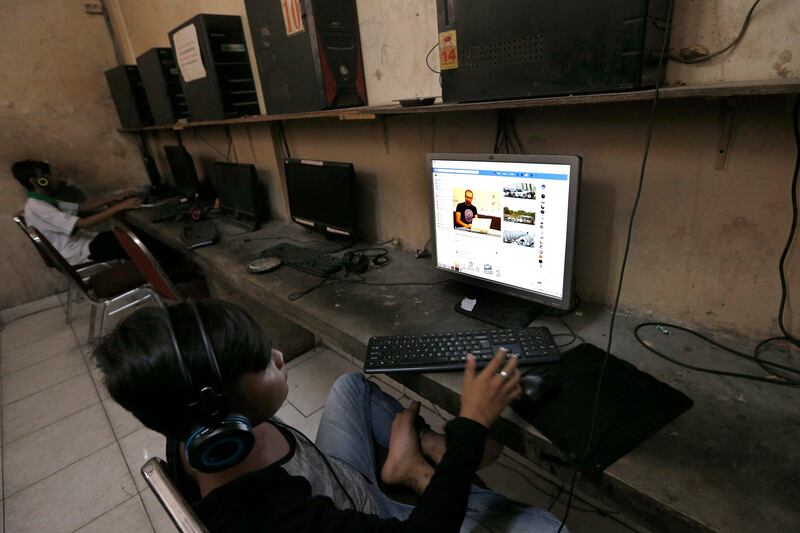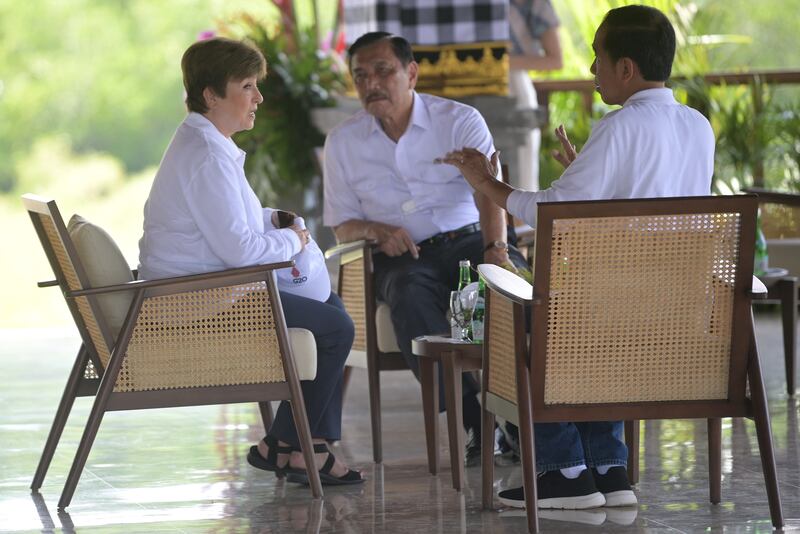Indonesia’s parliament on Tuesday approved the toning down of some provisions in an internet law that, critics said, stifled free speech and was used to prosecute journalists and activists.
While the revisions to the Electronic Information and Transactions Law make more specific what online insulting or defamation are, activists are still expressing concern that the law uses overly broad and vague terms and vests excessive power with the government.
Abdul Kharis Almasyhari, a lawmaker who was on the parliamentary committee deliberating the law, said the revisions aimed to provide legal clarity and protect personal rights while preserving public interest.
“There are no more elastic clauses,” he said in parliament, referring to the controversial provisions.
The changes to the law, which was first enacted in 2008 and revised once in 2016, came after years of criticism from civil society groups and human rights advocates who said the law threatened freedom of expression and stifled dissent.
The law regulates various aspects of online activities, such as content, privacy, and cybersecurity.
The Institute for Criminal Justice Reform, an NGO, said the revised law makes clear what constitutes criminality in some of the most controversial offenses such as obscenity, defamation, hate speech, extortion, and cyberbullying.
It also adds exceptions and justifications for certain acts, such as self-defense, public interest, and educational purposes, and lowers the maximum imprisonment and fines for some of the offenses, the institute said in a report released on its website Monday.
The revised law also reduces the maximum penalty for defamation to two years from four and allows for alternative sanctions, such as community service and rehabilitation, the NGO said.

SAFENet, a group that monitors digital rights, reported that 84 people faced criminal charges related to internet use in 2020, of whom 64 were charged under the information law.
Amnesty International Indonesia also said that at least 332 people were accused of violating vague and problematic articles in the law, from January 2019 to May 2022.
Activists on trial for alleged defamation
The revised law, however, still grants the government broad and vague authority to order content providers to make changes to their electronic systems or take other actions the government deems necessary – that is, measures akin to policing and censoring content.
Johanna Poerba, a researcher at Institute for Criminal Justice Reform, cited the case of Fatia Maulidiyanti and Haris Azhar, two human rights defenders who are on trial on charges of defamation.
They have been accused of defaming Luhut Binsar Pandjaitan, a senior minister, in a video that alleged his involvement in controversial gold mining activities in the Papua region.
They were charged under the information law and the prosecution has requested prison sentences of up to four years each for them.
“Fatia and Haris shared information for the sake of public interest. They should not have been charged” she told BenarNews.
It was not immediately clear whether the new law’s provisions, which go into force immediately, would affect the activists’ case.
Global Coalition, which comprises a variety of civil society groups and NGOs, on Monday cited the activists’ cases when it issued an open letter to the Indonesian president and other government officials urging them to uphold free speech.
“[W]e implore the Indonesian government not to repeat past mistakes that have unjustly criminalized countless innocent citizens,” the coalition said.
“This is an opportune moment for the Indonesian government to rectify its lowest standing in the Freedom of Expression Index and establish a lasting legacy for generations to come.”
A U.S-based organization, Freedom House, ranked Indonesia as “partly free” in its “Freedom in the World 2023” report, saying “the politicized use of defamation” was one of its reasons for doing so.
‘Preserves public interest’
Communication and Information Minister Budi Arie Setiadi said on Tuesday that the government was responsible for ensuring freedom of thought and expression as well as personal protection and respect for dignity, security and privacy.
“To guarantee these rights, the government needs to provide the necessary restrictions with the sole purpose of ensuring the recognition and fair rights in accordance with moral, religious, security and public order considerations in a democratic society,” he said in his speech in parliament.

Some Indonesians like Edi Santoso, a communication lecturer at Jenderal Soedirman University in Purwokerto, approved of the new version of the law saying it was a step forward for freedom of expression.
“On the one hand, it protects personal rights. On the other hand, it preserves public interest,” he told BenarNews.
Some conservative voices, though, criticized the revisions as a concession to liberal activists.
Another communication professor, Henri Subiakto, who is also a former government adviser, said the revisions would erode the nation’s morals as they relax rules on immoral content.
He referred to an article under which anyone who intentionally disseminates lewd content for public consumption can face legal sanctions.
This article, he said, only applies to something that is intended for publicity, while personal matters are exempt from legal sanctions even if they violate religious norms.
“That means that someone who sends a porn video to your sister or your wife cannot be punished,” Henri said.
“This is chaos and ignores religious norms.”
